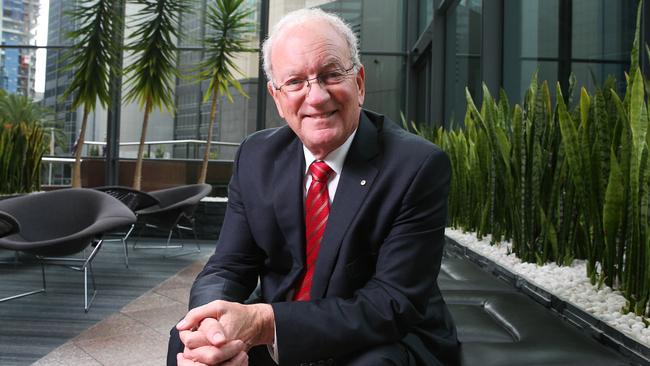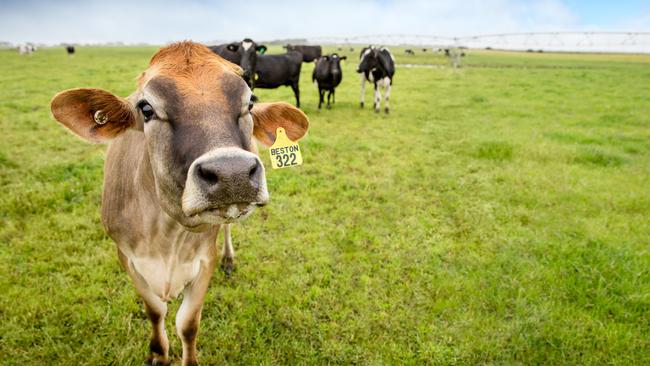Beston Global Food Company shut down its AGM almost immediately saying it needed legal advice
Beston Global Food Company’s shareholders will have to wait up to two months for their directors to front an annual meeting, after the scheduled event today was cancelled.

SA Business
Don't miss out on the headlines from SA Business. Followed categories will be added to My News.
Beston Global Food Company’s board avoided a possible second strike vote today by not holding an annual meeting at all.
In a virtual meeting which lasted about 70 seconds, chairman Roger Sexton said the AGM was being adjourned while the company received legal advice.
“As chairman I’m adjourning today’s annual general meeting, to a date and time to be advised,’’ he said.
“We are concerned about possible voting associations in the proxies which have been received by the company for this meeting.
“The adjournment will allow us time to consider whether there has been any unacceptable circumstances and to have the opportunity to obtain legal advice on the matter.’’

Beston’s significant shareholders are HSBC Custody Nominees (Australia) at 11.12 per cent, Kunteng with 10.6 per cent, Australia Aulong Auniu Wang Food Holdings with 9.04 per cent and BNP Paribas Nominees with 7.13 per cent.
Dr Sexton told The Advertiser after the meeting he could not elaborate for legal reasons, but a new AGM would be held within two months.
At Beston’s annual meeting last year, the board received a “first strike” against its remuneration report, with 64.9 per cent of votes cast going against adoption.
A 25 per cent vote is considered a “strike” under the Corporations Act.
If the company received a second strike at today’s meeting, it would have triggered a vote on whether to spill the board.
Shareholders were also today going to have the opportunity to vote on the election of Mr Yuan Ma to the board, representing Kunteng.
In a letter supporting his bid for election, Kunteng director Yi Zhuang argued for “new blood”.
“The 12 months of FY2020/21 are crucial to ensuring Beston’s long-term viability as Beston has been suffering losses and negative cashflows for the last five consecutive financial years,’’ Mr Zhuang writes.
“These consecutive losses have caused a significant erosion on shareholder value over the same period.’’
Kunteng - a wholly owned subsidiary of Chinese private company Dalian Hairunlai Group — invested $28m into Beston at 45c a share in 2016. The share price is currently 8.1c.
Mr Zhuang writes that board renewal is “most likely, long overdue’’ and should occur “as soon as possible’’.
Dr Sexton said Mr Ma’s bid for election had not been lodged within a time frame which would have allowed the company to conduct the relevant due diligence.
At last year’s annual meeting, Dr Sexton did not follow the usual practice of showing shareholder votes received before the meeting in advance of voting on the resolutions, and did not disclose the outcome of the votes at the meeting.
Dr Sexton, who at the time was also the local head of the Australian Institute of Company Directors, said it was now considered “best practice” not to divulge voting during the meeting.
He told the meeting this was because shareholders could be influenced by votes cast.
Australian Shareholders Association representative Bob Ritchie, asked at that meeting whether the votes would be shown and was told by Mr Sexton it was “common practice” not to show voting outcomes.
“My experience in public companies is exactly the opposite of what you have just said,’’ Mr Ritchie said last year.
Beston’s remuneration report - the report which can attract a strike vote - does not disclose how much its executives are paid.
Instead the company is managed by Beston Pacific Asset Management, a company owned by Dr Sexton and fellow board member Stephen Gerlach.
BPAM is paid a management fee in the vicinity of $2 million per year, and pays senior management out of that amount.
The management fee calculated as 1.2 per cent of the portfolio value of Beston, and for 2019-20 BPAM was paid $2.13 million, putting the portfolio value at $178 million.
This compares with the market capitalisation of the company of $49 million.
The company’s independent directors reviewed the BPAM arrangement this year but decided not to terminate it.
A termination would require a shareholder vote and would trigger a termination payment to BPAM.
Dr Sexton said today the payment would be based on the value of the company, and he expected the independent directors would have come to a position on the management structure by January.
He said the decision to adjourn the AGM was made early Thursday morning.
The Australian Shareholders Association, in a notice of its voting intentions supplied to Beston, said it “has concerns about the independence of mind of all the directors classified by the board as independent’’.



